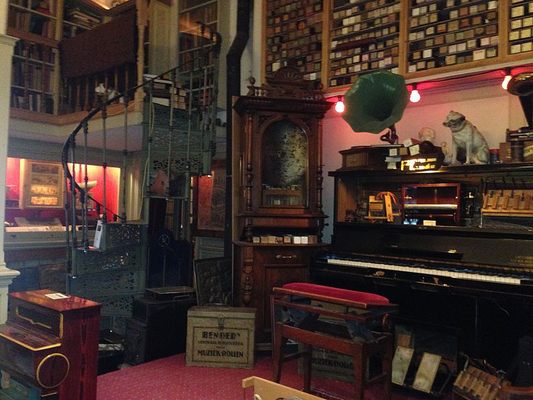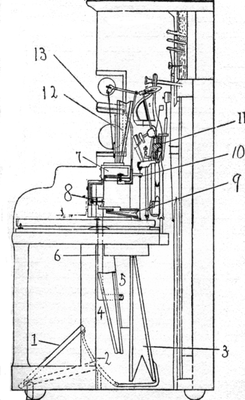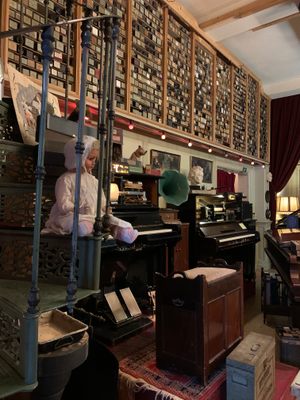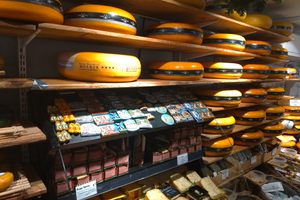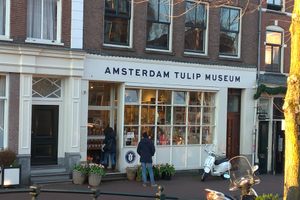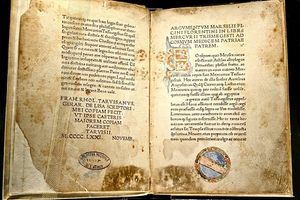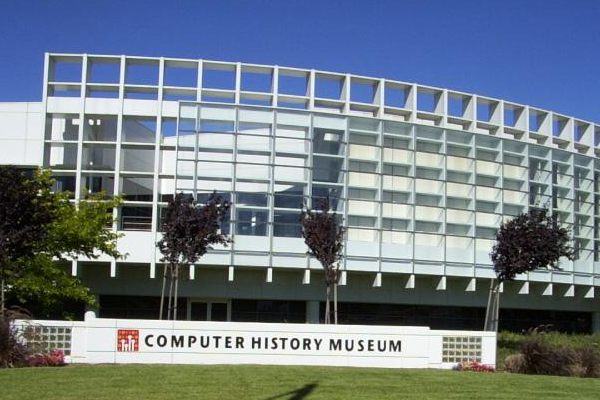About
In a city chock-a-block with museums, one of the smallest and most delightfully eccentric is home to about 50 mechanical player pianos and almost 20,000 punched rolls of music. Volunteers are on-hand to give you a personalised tour.
The player piano was a very popular American invention of the late 1800s. The latest evolution of musical automata, these self-playing pianos began to emerge along with mechanical adaptations for standard pianos in the 1870s. Most of them required a human user to use the foot pedal bellows to run machinery that pulled scrolls of pre-programmed music past the mechanical parts, which then activated the keys of the piano. The name Pianola was a trademark of the The Aeolian Corporation of New York in the 1890s, but the name was broadly applied to all player pianos. Export to Europe began in 1899 where these expensive machines quickly gained popularity in the posher homes and music halls.
The program scrolls were made of normal paper, punched with holes or slits to correspond to notes, much like early computer punch cards. Some composers took advantage of the new technology to design songs that could not be played with a mere ten fingers, creating unique pieces exclusive to the machine's inexhaustible supply of virtual fingers. Sadly, most of these compositions are rather unlistenable.
The wonderfully scenic Jordaan neighbourhood where this museum is located has long been gentrified (though you can still witness its roots during the Monday Morning Flea Market on Noordermarkt). But in the heyday of the pianola, it was still distinctly working class and could not afford such fancy technology.
However, the district did have a roll-making factory. When this business went bankrupt, the factory was taken over by a certain Otto Frank who moved in with his family to set up a business—the building is indeed now known as the Anne Frank House. (As an odd parallel, an IBM punch card system similar to that of the pianola was used by the Nazis to help facilitate the streamlining of mass genocide.)
By the end of WWII, the pianola market had dried out: radio and vinyl record players had completely taken over. And while vinyl records are currently enjoying a renaissance, it’s not likely the same will happen for the pianola. As of 2018, the museum has also faced the danger of an impending sale of its building. So support this wonderful hands-on museum while you still can!
Related Tags
Know Before You Go
By tram: 3, 10 (stop Marnixbad). Phone: + 31 20 627 96 24. It is open Friday, Saturday and Sunday from 11:00h until 17:00h.
Community Contributors
Added By
Edited By
Published
December 12, 2009
